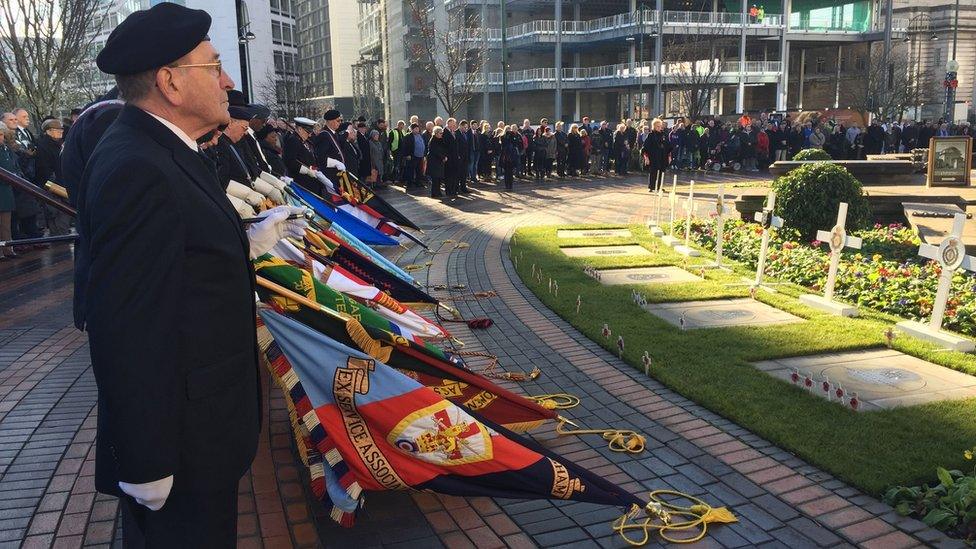Remembrance Sunday: Services honour war dead
- Published
The Queen leads Cenotaph commemorations on Remembrance Sunday
A two-minute silence has been held to mark Remembrance Sunday.
Services have taken place across the country to honour all those who have died in conflict.
The Queen led the commemorations at the Cenotaph in London. Prime Minister Theresa May and party leaders attended.
The Queen laid the first wreath, followed by other royals and politicians. After a remembrance service, veterans and current military personnel paraded down Whitehall.
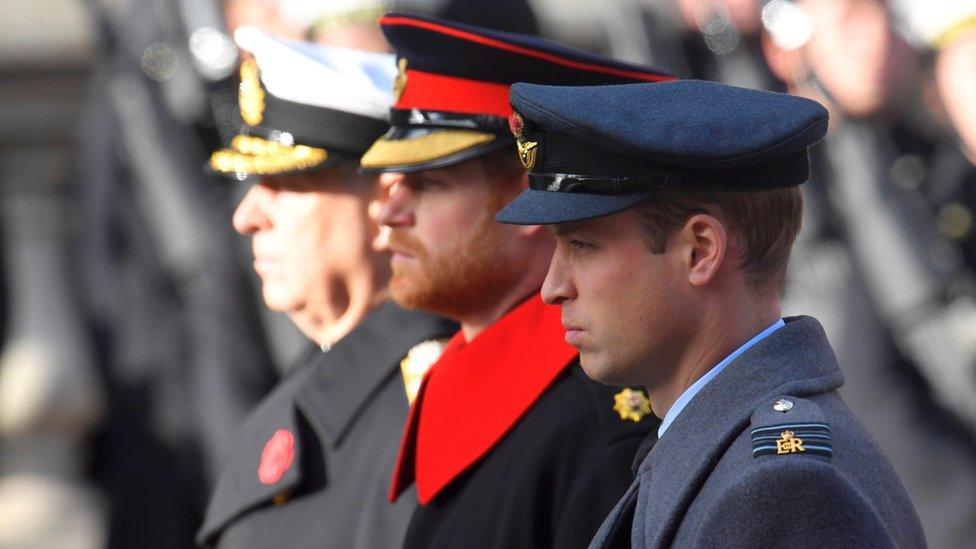
Princes Andrew, Harry and William, who have all served in the armed forces, paid their respects
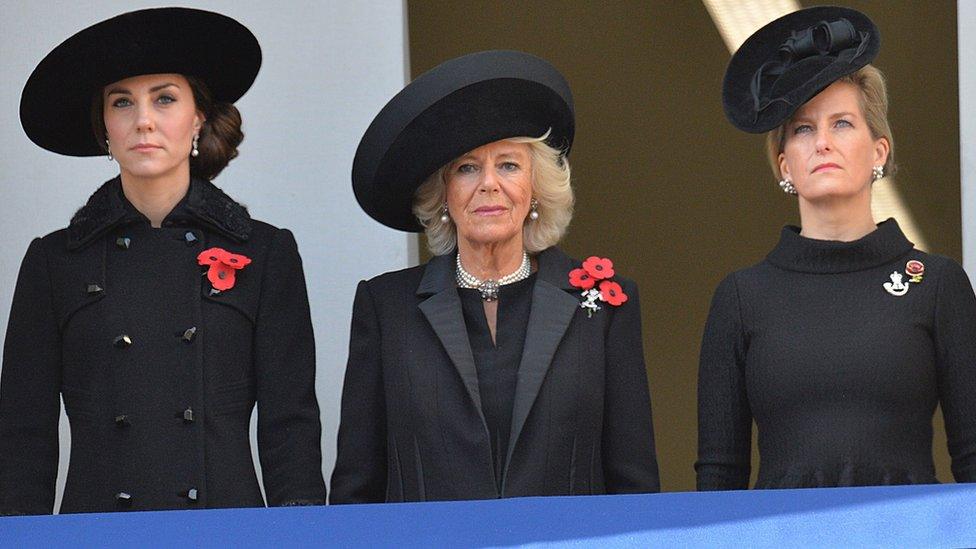
The Duchess of Cambridge, Duchess of Cornwall and the Countess of Wessex attended
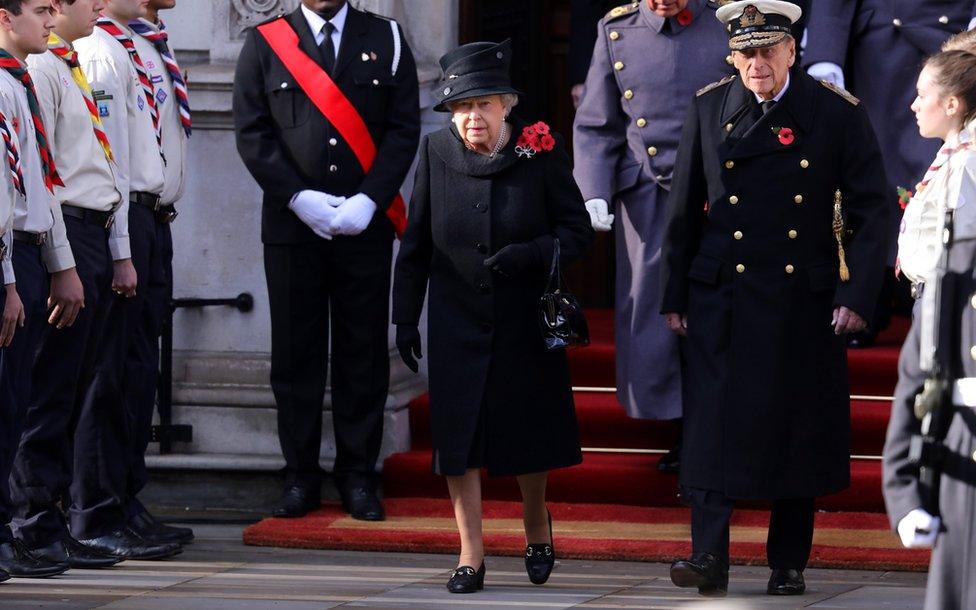
The Queen laid the first wreath at the foot of the Cenotaph, followed by the Duke of Edinburgh
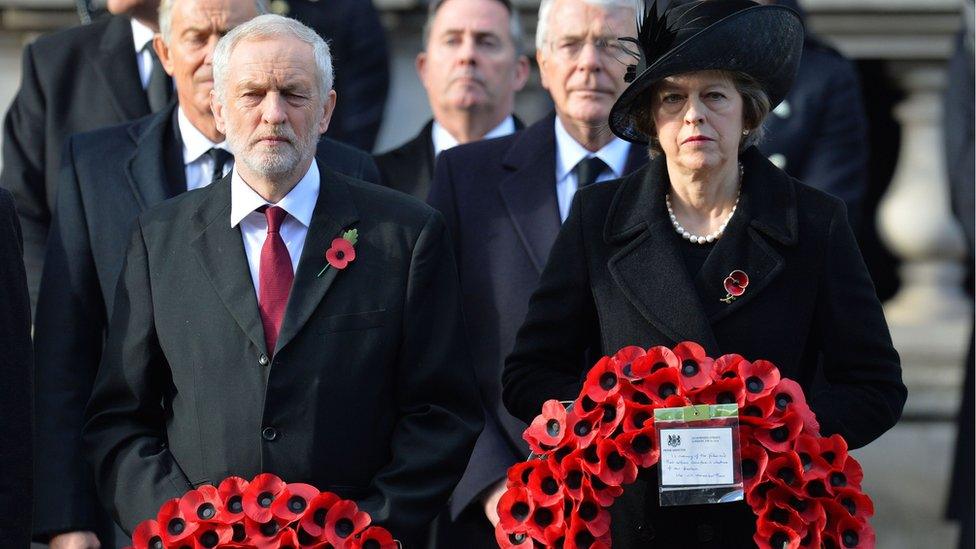
Labour leader Jeremy Corbyn and Prime Minister Theresa May also laid wreaths
More than 700 soldiers, sailors and members of the RAF lined Whitehall to hear a service led by the Bishop of London, the Right Reverend Richard Chartres.
Detachments from units such as the Royal Marines, Household Cavalry and Royal Gurkha Rifles flanked the stone memorial.
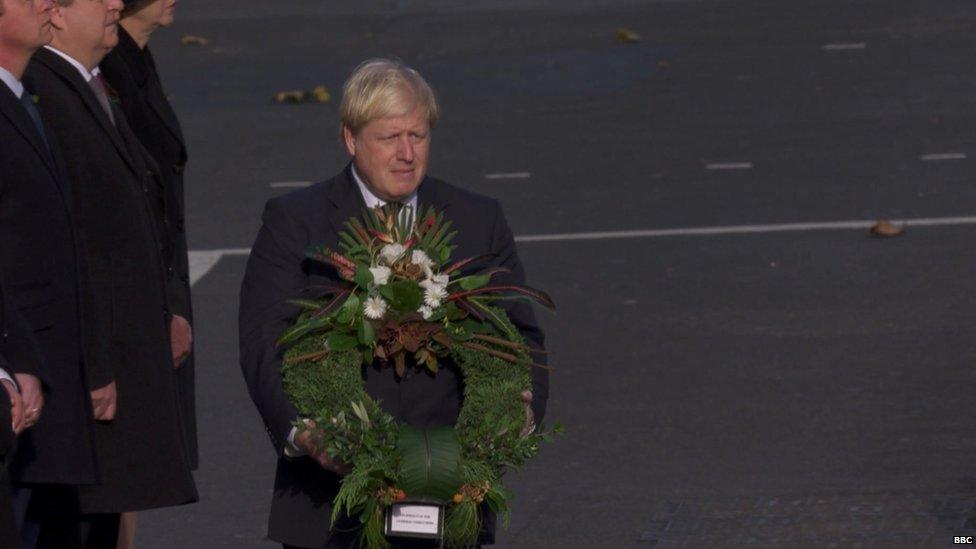
Boris Johnson laid a wreath for the overseas territories put together by Kew Gardens
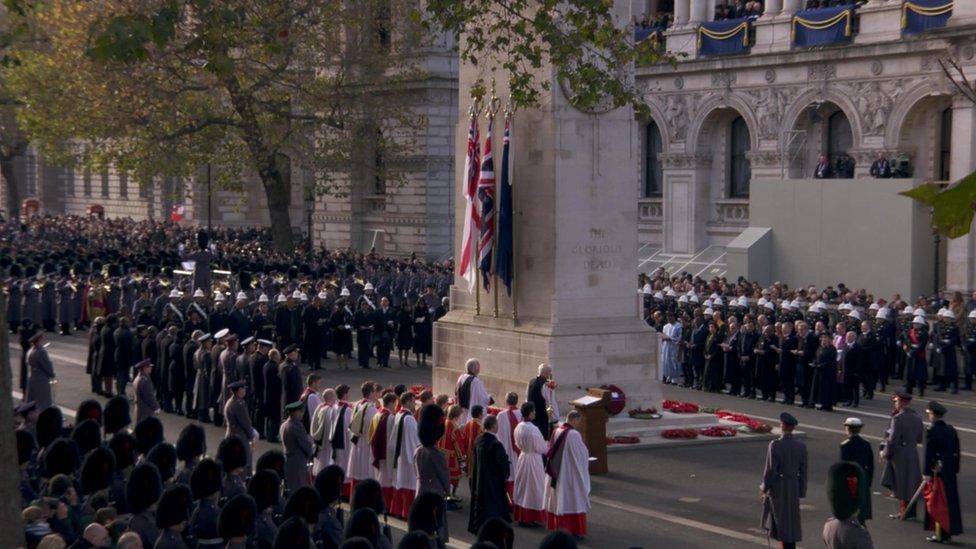
All branches of the UK military were represented at the main London ceremony
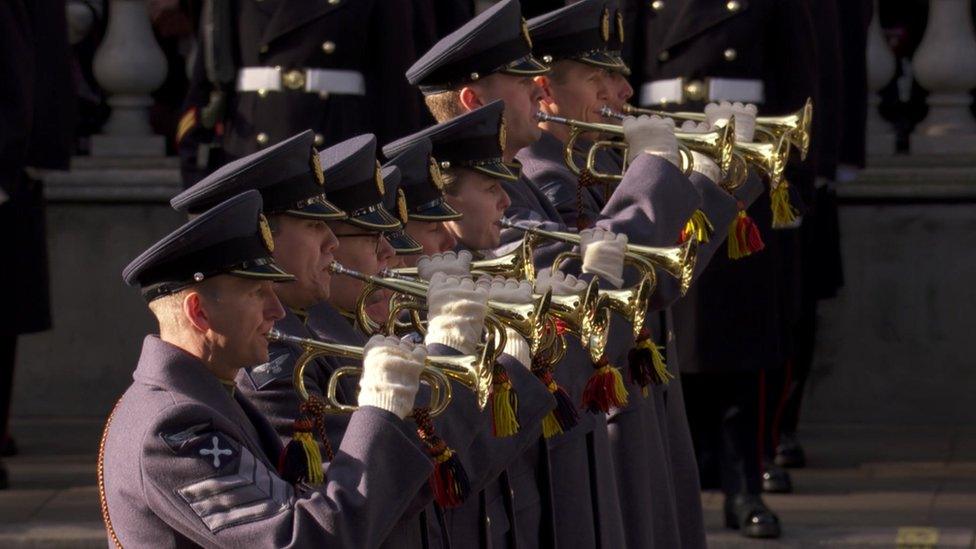
The Last Post was played in tribute to the British military dead
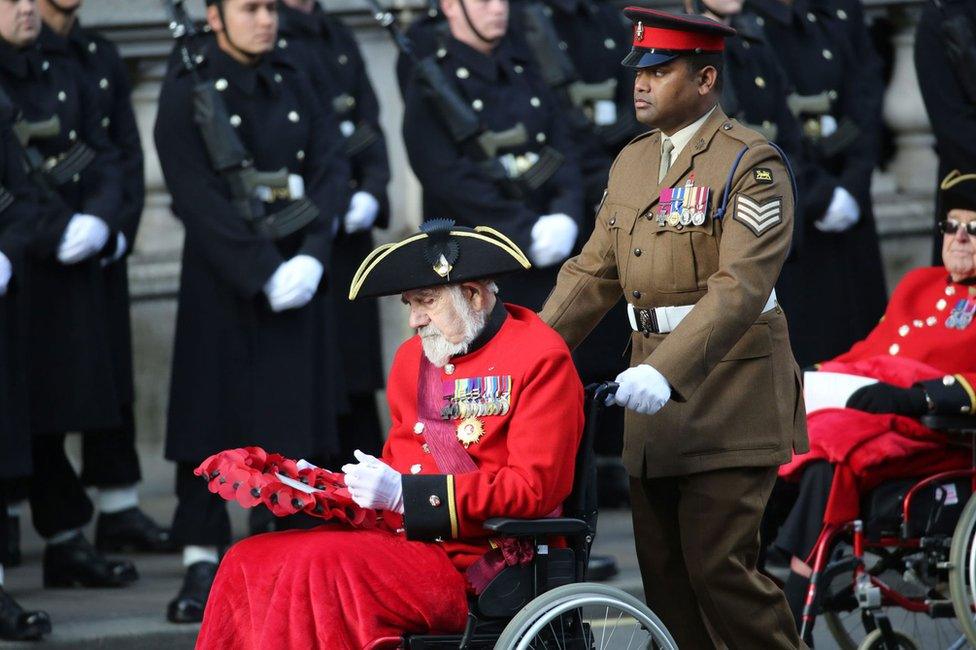
Johnson Beharry with Bill Speakman on Whitehall. Both men were awarded the Victoria Cross
Scotland's First Minister Nicola Sturgeon attended the annual wreath laying and Remembrance Sunday service at St Giles' Cathedral in Edinburgh.
She said it was "an opportunity for all of Scotland to join with others right across the world and commemorate those who made the ultimate sacrifice in conflicts during the last century and more recently".

At the scene
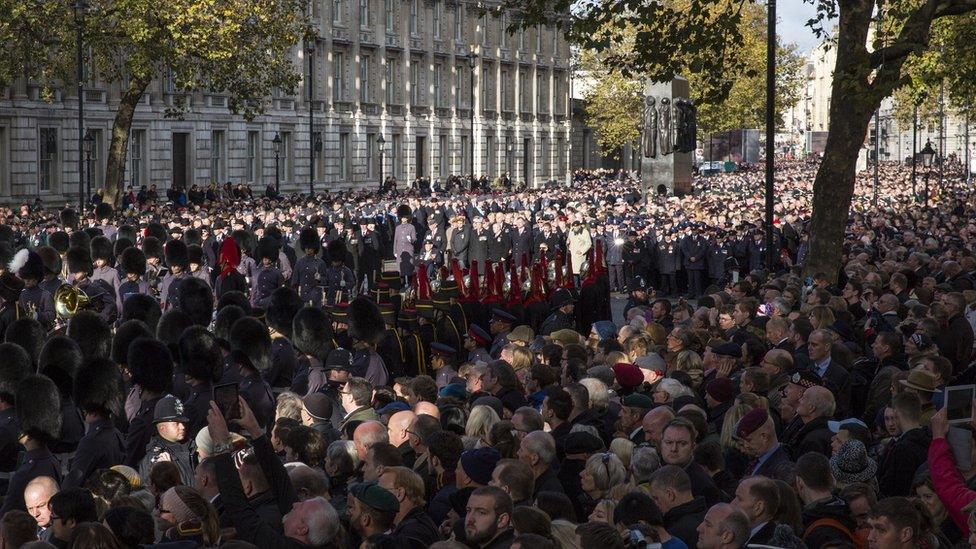
BBC correspondent Daniela Relph at Whitehall
The crowds are 20-people deep in places on Whitehall.
Those with a front row position had to start queuing to get through security at first light. People were craning their necks to catch a glimpse of the march past.
Whitehall today is a place of shared remembrance.
There are those who've come to the Cenotaph on Remembrance Sunday for the first time. And there are those for whom this is an annual event, something they would never miss.
They have come from all over Britain and beyond. Those I spoke to talked of feeling humbled during the 11 o'clock silence.
They also said that that being here, in person, was a really moving experience.
There are 8,000 people taking part in the march past. Watching it stirs contradictory feelings - it is both a solemn experience and somehow uplifting.
No-one here on Whitehall today will ever forget.

The Irish Prime Minister and Northern Ireland's First Minister attended a Remembrance Sunday ceremony in Enniskillen, Fermanagh.
And there was a National Service of Remembrance for Wales at Cathays Park in Cardiff.
First Minister Carwyn Jones said: "It is important we take the opportunity to pay tribute to those who lost their lives, paying the ultimate price for our freedom.
"Those who fought bravely for our futures must never be forgotten."
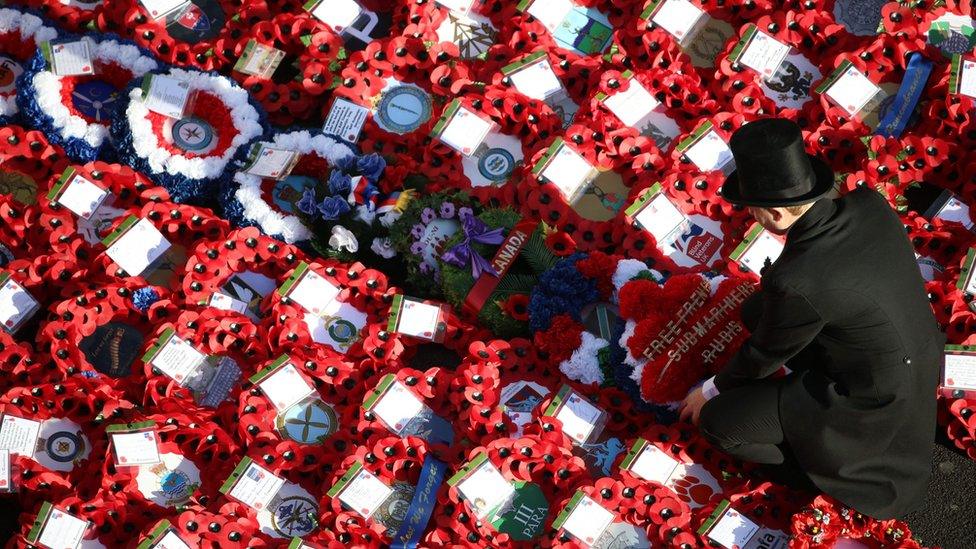
Wreaths were laid at the Cenotaph from across the UK and beyond
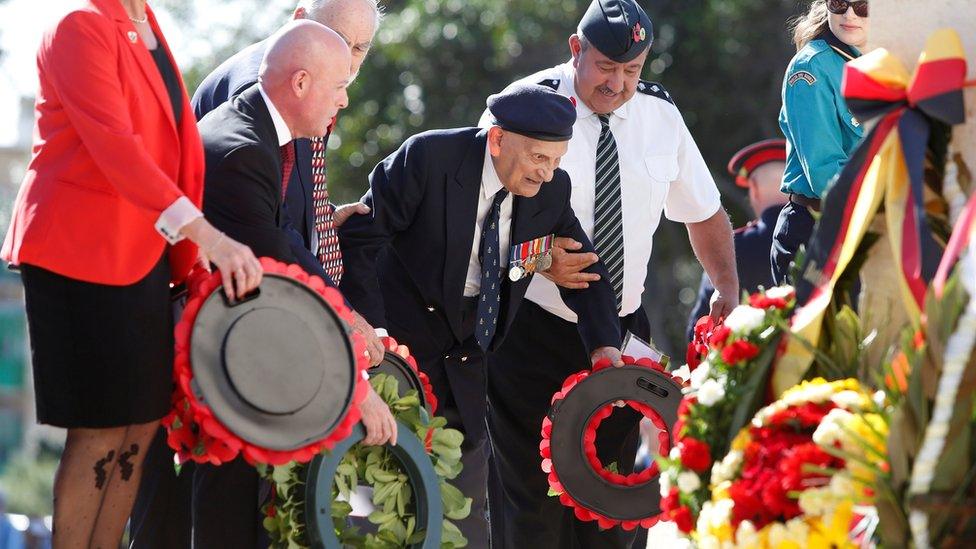
Services were held abroad, with a veteran in Floriana, Malta, pictured laying a wreath
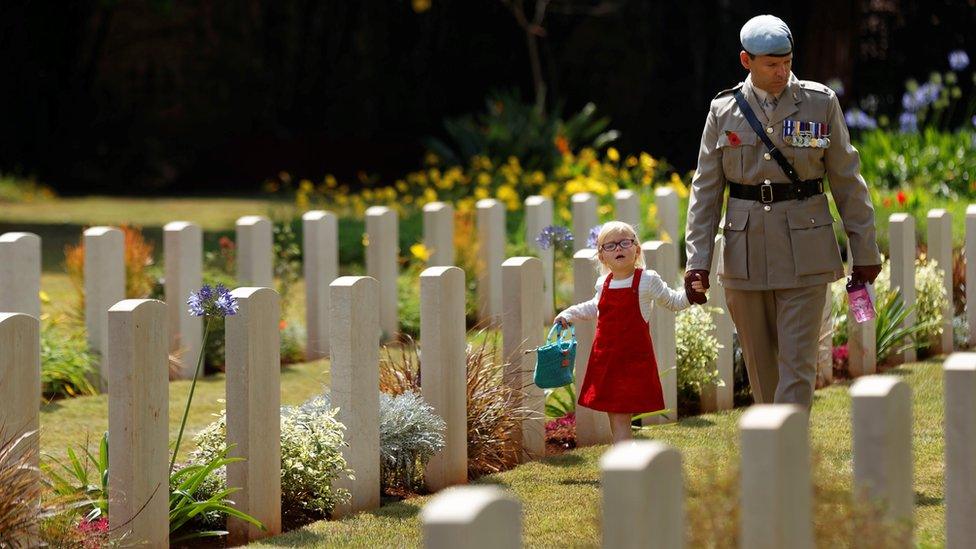
Serviceman Ed Watters walked through the Nairobi War Cemetery with his daughter Jocelyn
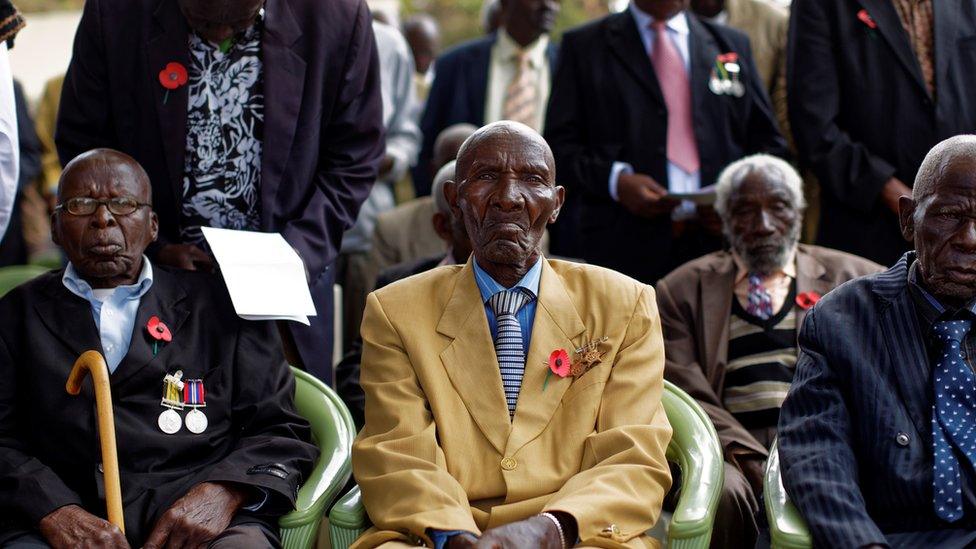
British and Commonwealth military are honoured at the annual event
Remembrance Sunday: Knitted poppies decorate Thirsk
Elsewhere, more than 40,000 knitted poppies have been placed on a Remembrance Day parade route in Thirsk, North Yorkshire.
The organisers said volunteers had sent in knitted and crocheted flowers from all over the world.
In Croydon, where seven people were killed and 50 injured after a tram derailed earlier this week, special prayers are being said for those affected.

Remembrance Sunday
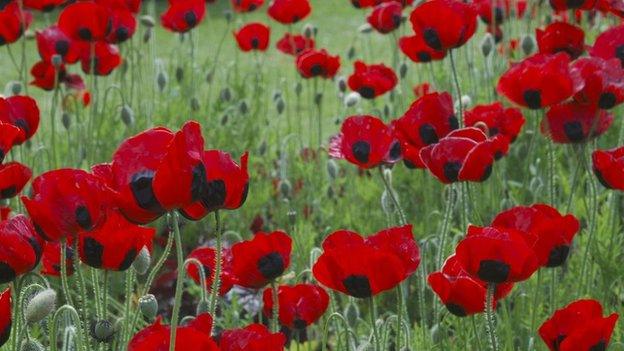
Remembrance Sunday always falls on the second Sunday of November
The artificial poppy was adopted and popularised in 1921 by Douglas Haig and the Royal British Legion
In 1947 it was agreed that both World War One and World War Two would be remembered on just one national day, Remembrance Sunday
Find out more:

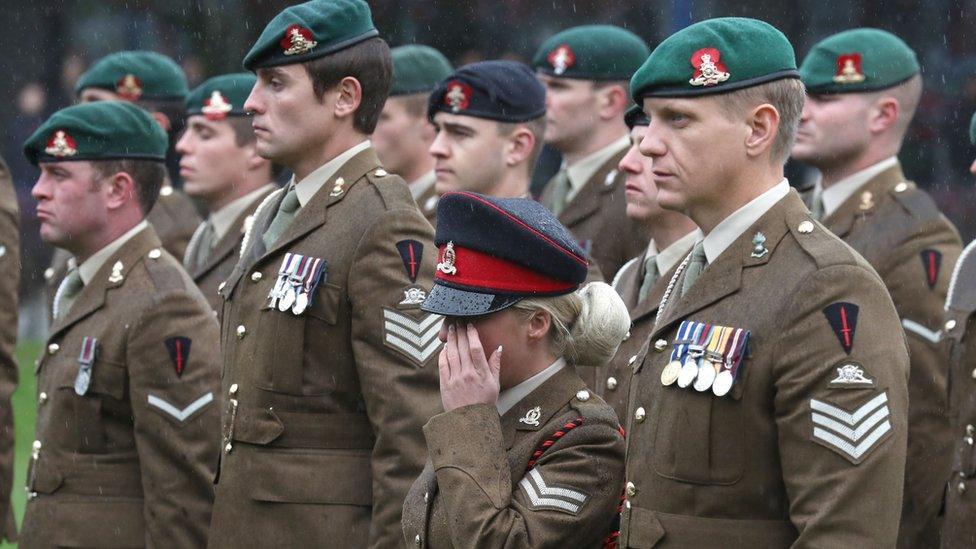
Servicemen and women in Fort William remembered the fallen
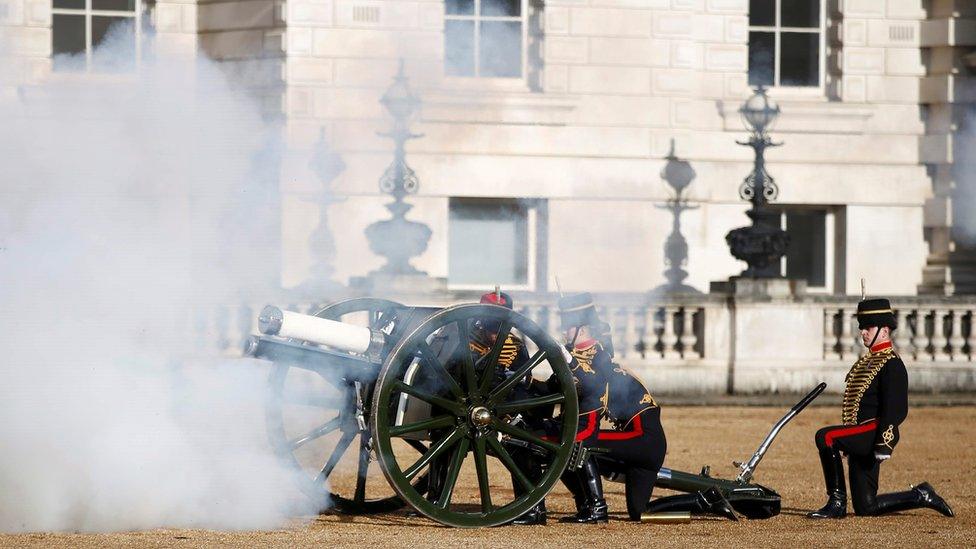
The Royal Artillery at Horse Guards Parade marked the end of the commemorative silence
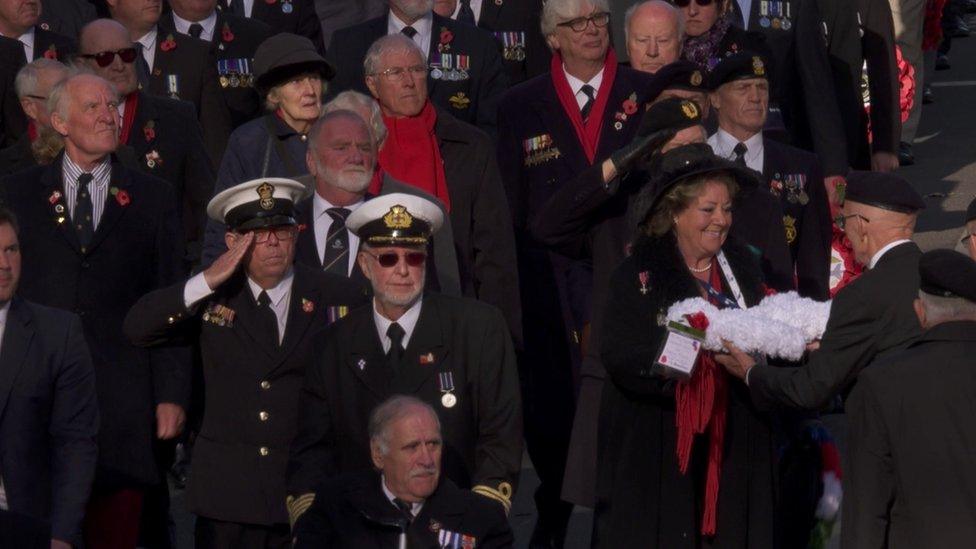
The Merchant Navy Association, led by Vivien Foster, added their wreath
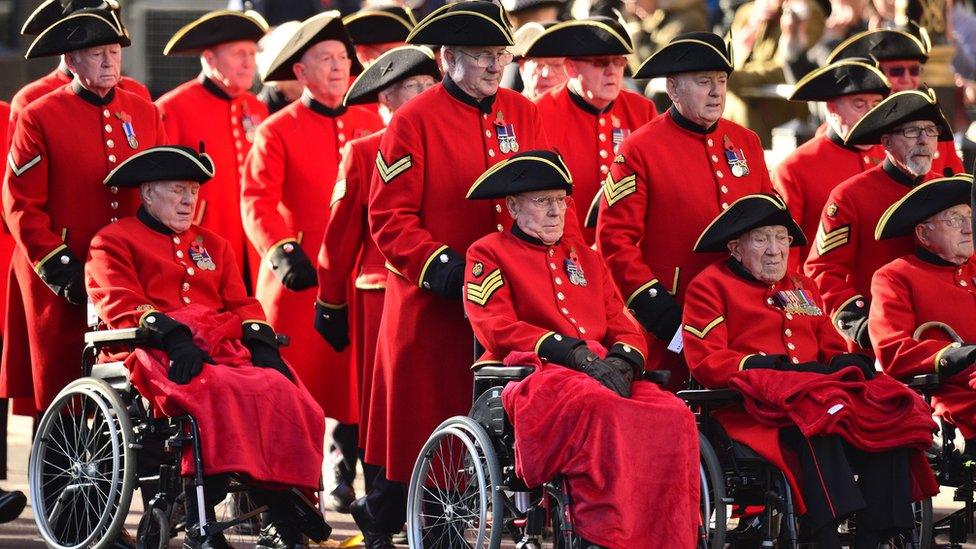
Chelsea Pensioners were also on hand to pay their respects at the main London ceremony

Prime minister pays tribute
The prime minister has said the day is not only about honouring the dead but also for paying tribute to those members of the armed forces currently on active service combating so-called Islamic State.
Mrs May said: "The way of life we enjoy today depends upon the service offered by members of the armed forces and their families.
"Across generations, and in every corner of the UK, today we remember those who gave so much for our values, our democracy, and our nation."

Brothers in arms
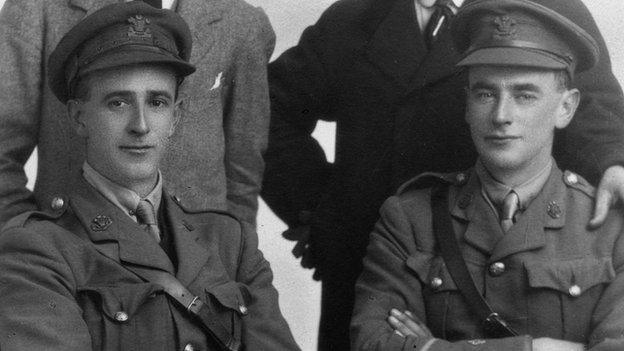
Brothers Second Lieutenant Leonard Tregaskis and Lieutenant Arthur Tregaskis died on 7 July 1916
The Imperial War Museums, external are releasing letters, photographs and memoirs donated by families of soldiers killed in the Battle of the Somme in 1916, the bloodiest clash in World War One.
The documents originally formed part of the museum's Bond of Sacrifice collection dating from its formation in 1917.
Contributions included a photograph of two brothers who it is said were within 50 metres of each other when one was wounded and the other rushed to his aid and was shot.
They died in each other's arms, and their mother received one telegram in the morning informing her of one son's death, and later the same day, another telegram telling her the other son had died.
The documents will now be part of the Lives of the First World War digital memorial.

Festival of Remembrance
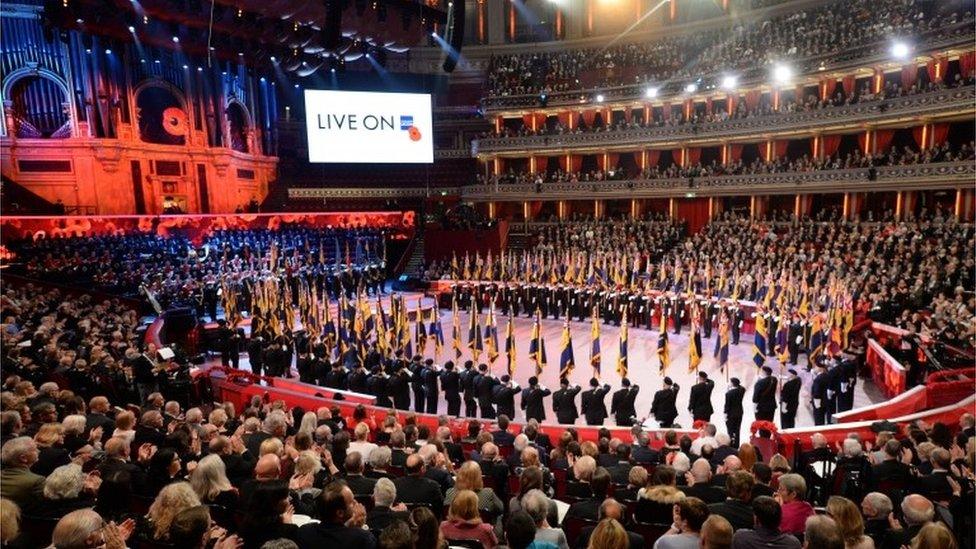
The annual Festival of Remembrance was held at the Royal Albert Hall
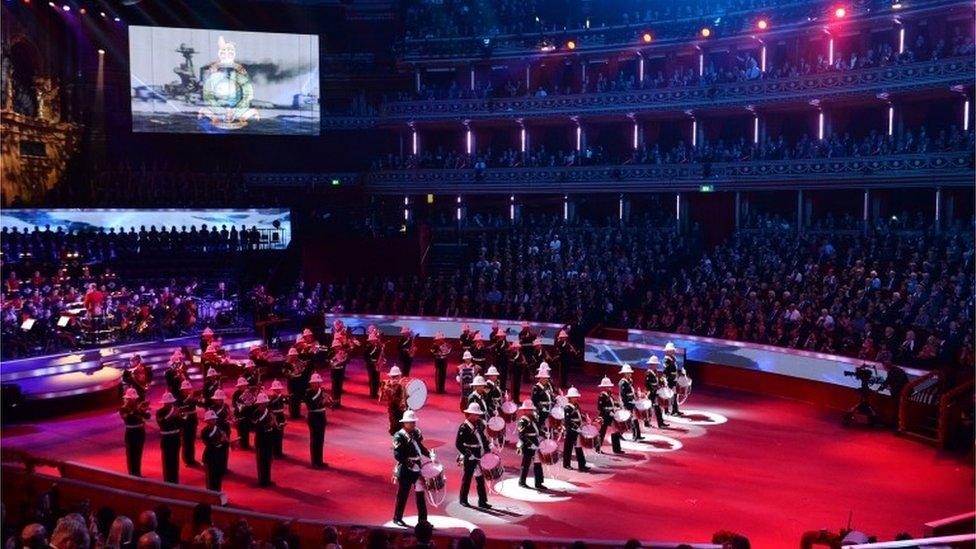
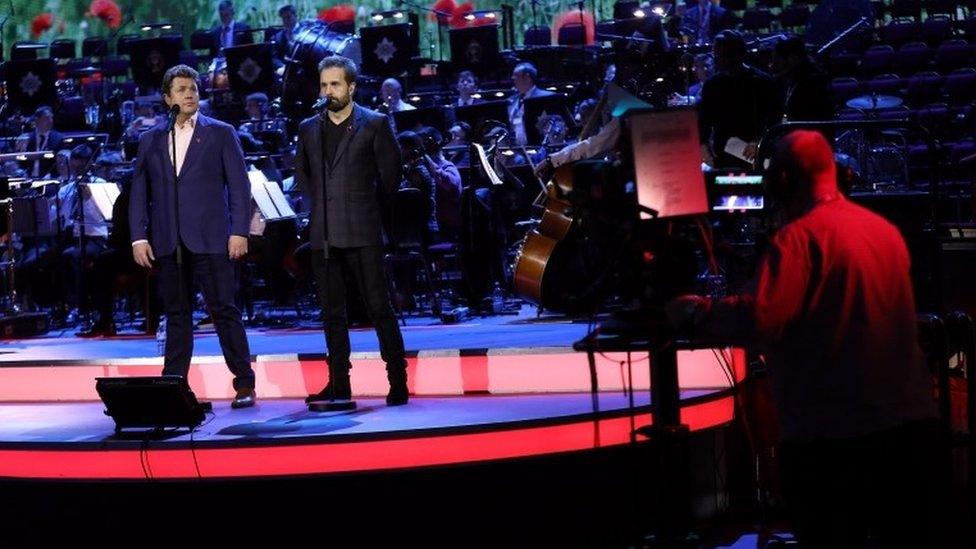
Michael Ball and Alfie Boe performed together, singing You'll Never Walk Alone
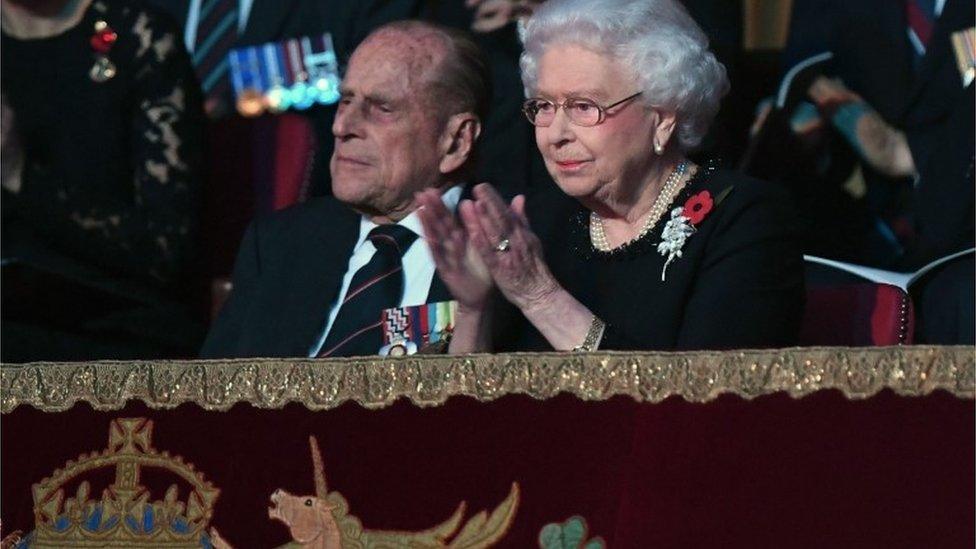
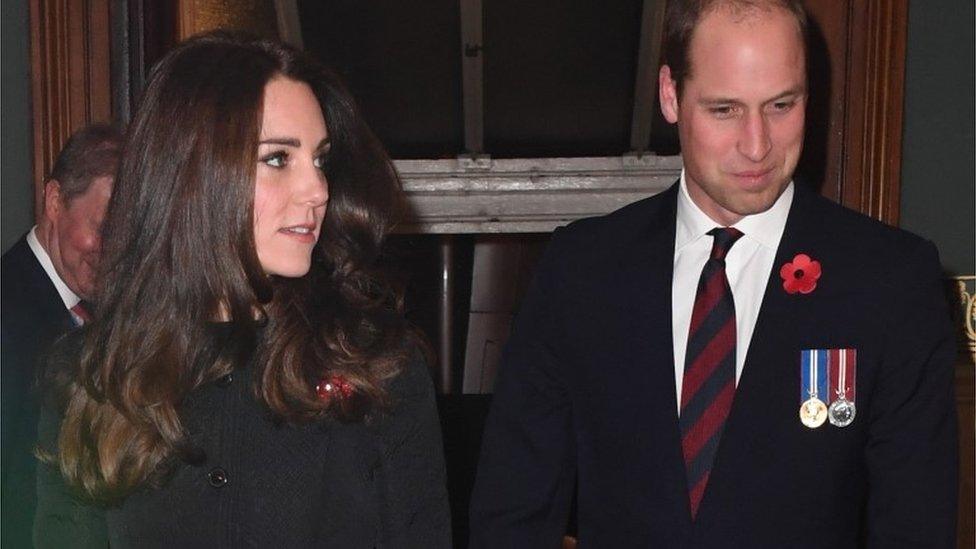
At the Royal Albert Hall on Saturday evening, the Queen and other members of the Royal Family stood to applaud a procession of bereaved families.
It came after the audience heard the story of Cyrus Thatcher, external, who was killed in 2009 aged 19 while fighting as a rifleman in Afghanistan.
The Queen and the rest of the royal box joined the standing ovation as his parents, Helena Tym and Robin Thatcher, led a procession of bereaved families through the hall.
This year the event marked the centenaries of the Battle of the Somme and the Battle of Jutland, the 25th anniversary of the Gulf War and the 80th anniversary of the first flight of the Supermarine Spitfire.
Thousands of poppies fluttered to the ground from the hall's domed roof as the room observed a two-minute silence.
- Published13 November 2016
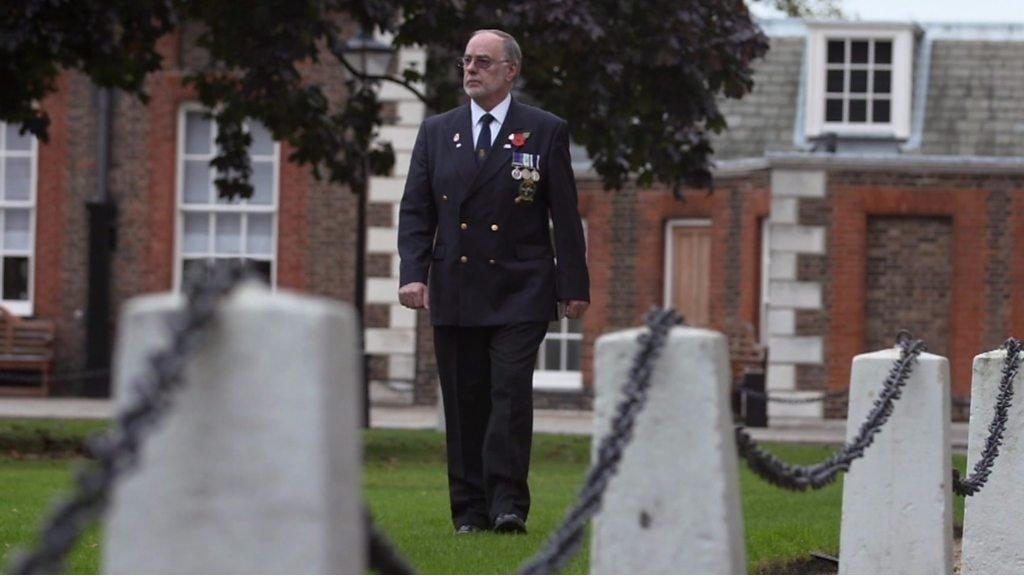
- Published13 November 2016
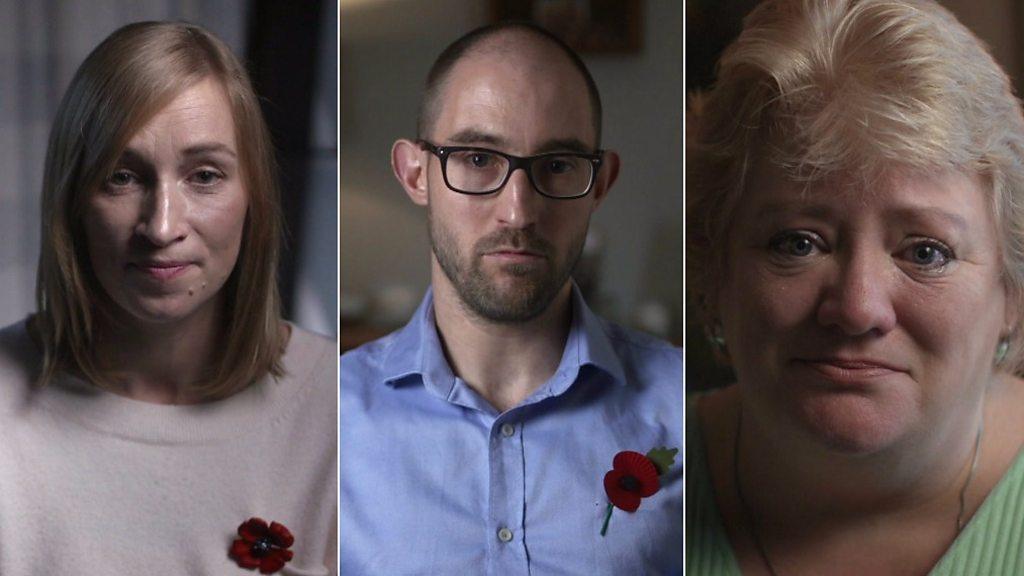
- Published13 November 2016
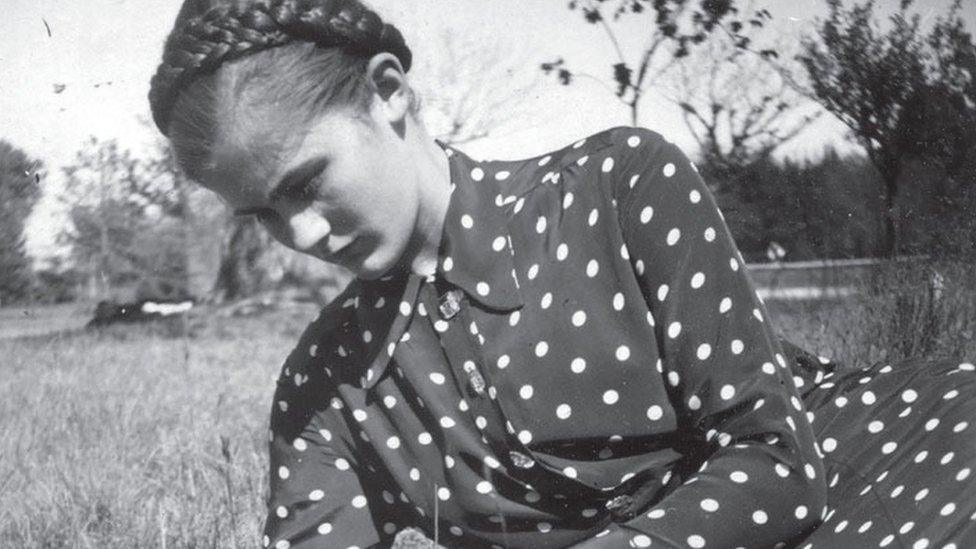
- Published13 November 2016
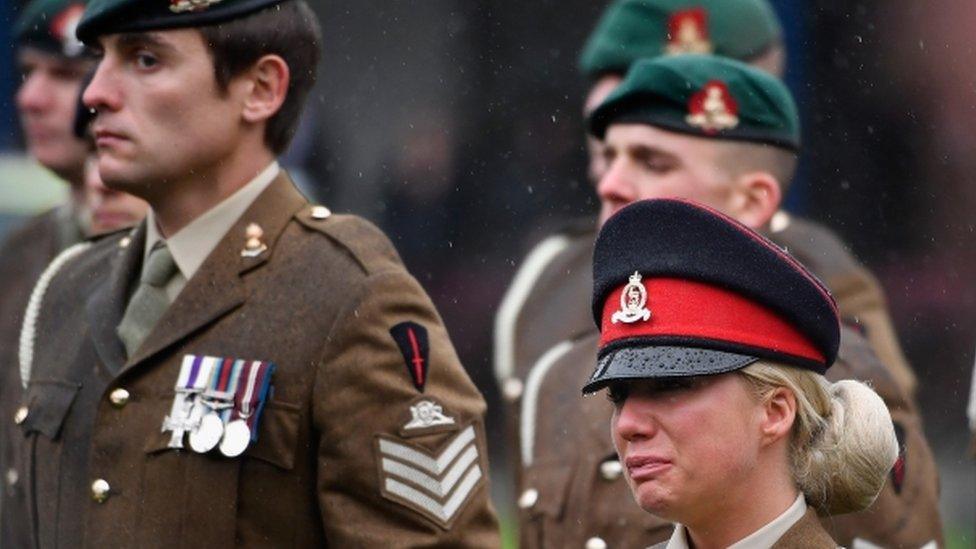
- Published13 November 2016
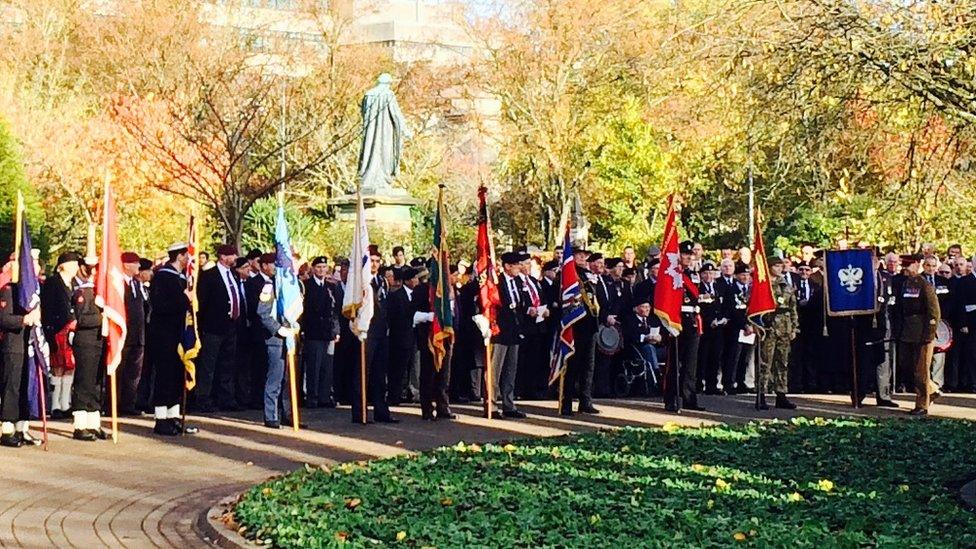
- Published11 November 2016
